Best Pet Nutrition Tips: Healthy Eating for Your Pet

Food is one of the most important decisions we need to make for our pets. Health, happiness, and longevity of our furry companions can be greatly affected by their nutritional status. If you have a pet, whether it is a dog, cat, rabbit, or any other kind of animal, understanding the best pet nutrition tips is vital to its overall well-being.
Pets depend on us to feed them balanced, nutritious meals that meet their specific needs. Despite the fact that there are many options in the pet food industry, not all foods are created equal. Making the wrong choices can lead to nutritional imbalances, digestive issues, and long-term health problems.
This article will provide you with the best pet nutrition tips to ensure your pet has the nutrition it needs to live a long, healthy, and active life. We’ll explore the fundamentals of pet nutrition, offer expert advice on what to feed your pet, and provide practical tips for maintaining an optimal diet.
Understand Your Pet’s Nutritional Needs
Every pet has different dietary requirements depending on their species, age, breed, size, and activity level. Understanding these needs is the first step toward providing the best nutrition for your pet.
Dogs: The Basics of Canine Nutrition
Dogs are omnivores, meaning they can eat animal-based foods as well as plant-based foods. Healthy fats, proteins, carbohydrates, vitamins, and minerals should be included in the diet. Here are some general guidelines for feeding your dog:
- Protein: Essential for muscle growth, repair, and overall health, protein should be a primary ingredient in your dog’s food. Look for meat, poultry, or fish as the first ingredient.
- Fats: Healthy fats provide your dog energy and help keep their skin and coat healthy. Omega-3 and omega-6 fatty acids are particularly important.
- Carbohydrates: Dogs can digest carbohydrates like grains and vegetables, which provide fibre for digestive health and energy.
- Vitamins and Minerals: Nutrients like calcium, phosphorus, and vitamins A, D, and E are important for your dog’s immune system, bone health, and overall vitality.
Cats: Nutritional Needs for Obligate Carnivores
Unlike dogs, cats are obligate carnivores, meaning they must consume animal-based protein to thrive. Their nutritional needs are more specialized:
- Protein: Cats require high protein levels from meat to maintain healthy muscles, organs, and tissues.
- Taurine: This essential amino acid is found only in animal tissues. Without taurine, cats can suffer from heart disease, vision problems, and reproductive issues.
- Fat: Fats are also crucial for energy and coat health in cats. Omega-3 and omega-6 fatty acids should be part of their diet.
- Minimal Carbohydrates: Cats do not require large amounts of carbohydrates. Their diet should primarily consist of protein and fats.
Small Pets (Rabbits, Guinea Pigs, Hamsters, etc.)
Small pets like rabbits, guinea pigs, and hamsters have different dietary needs than dogs and cats. The key factors for feeding these animals include:
- Fiber: Small pets need a high-fiber diet. Hay, fresh vegetables, and fibre-rich pellets should make up most of their diet.
- Fresh Water: Always provide fresh, clean water, as small pets tend to be at risk of dehydration.
- Protein: While protein is important, it should be provided in moderation to avoid obesity and kidney issues in small pets.
Understanding your pet’s nutritional needs can ensure that you are providing them with the best possible food.
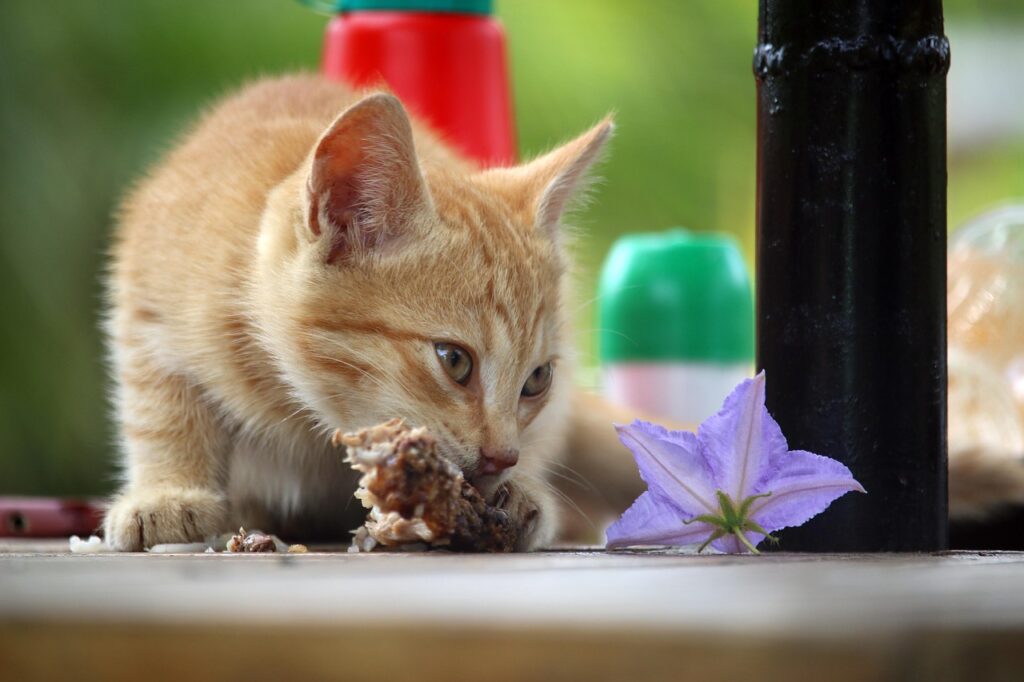
Choose High-Quality Pet Food
When selecting food for your pet, it is important to choose high-quality options that provide balanced nutrition. Many commercial pet foods are filled with fillers, artificial preservatives, and low-quality ingredients with little nutritional value.
What to Look for in High-Quality Pet Food:
- Animal-Based Protein: The first ingredient should be a high-quality animal protein, such as chicken, beef, turkey, or fish. Avoid meat by-products, as these are often of lower quality.
- Healthy Fats: Look for animal fats, such as chicken fat or fish oil, which provide essential fatty acids for skin and coat health.
- Whole Grains and Vegetables: Whole grains like brown rice, oats, or barley, and vegetables like sweet potatoes and carrots are great sources of fibre, vitamins, and minerals.
- Added Nutrients: High-quality pet food will include essential vitamins and minerals such as vitamins A, D, and E, as well as minerals like calcium and phosphorus for bone health.
What to Avoid in Pet Food:
- By-products: By-products are low-quality animal parts (such as beaks, feathers, and organs) that provide minimal nutritional value. Avoid foods that list by-products as the first ingredient.
- Excessive Fillers: Corn, soy, and wheat are commonly used as fillers in pet food. These ingredients provide little nutritional value and can be hard for some pets to digest.
- Artificial Additives: Artificial colours, preservatives, and flavours can harm your pet’s health. Choose foods that are free of these artificial ingredients.
When choosing pet food, always check the ingredient list and opt for foods that contain whole, natural ingredients to support your pet’s long-term health.
Portion Control: Don’t Overfeed Your Pet
It’s easy to overfeed pets, especially when they give us those sad puppy eyes or meow for extra treats. However, overfeeding can lead to obesity, which brings about a host of health problems, including diabetes, arthritis, and heart disease.
Tips for Portion Control:
- Follow Feeding Guidelines: Always check the feeding guidelines on your pet’s food packaging. These guidelines provide recommendations based on your pet’s size, age, and activity level.
- Measure Food: Use a measuring cup to ensure you’re feeding the right amount of food. This helps avoid overfeeding or underfeeding.
- Use a Feeding Schedule: Instead of free-feeding (leaving food out all day), stick to a set feeding schedule. Most adult pets do well with two meals a day.
- Monitor Weight: Regularly weigh your pet and observe its body condition. If it’s gaining weight, consider reducing its portion sizes or increasing its exercise.
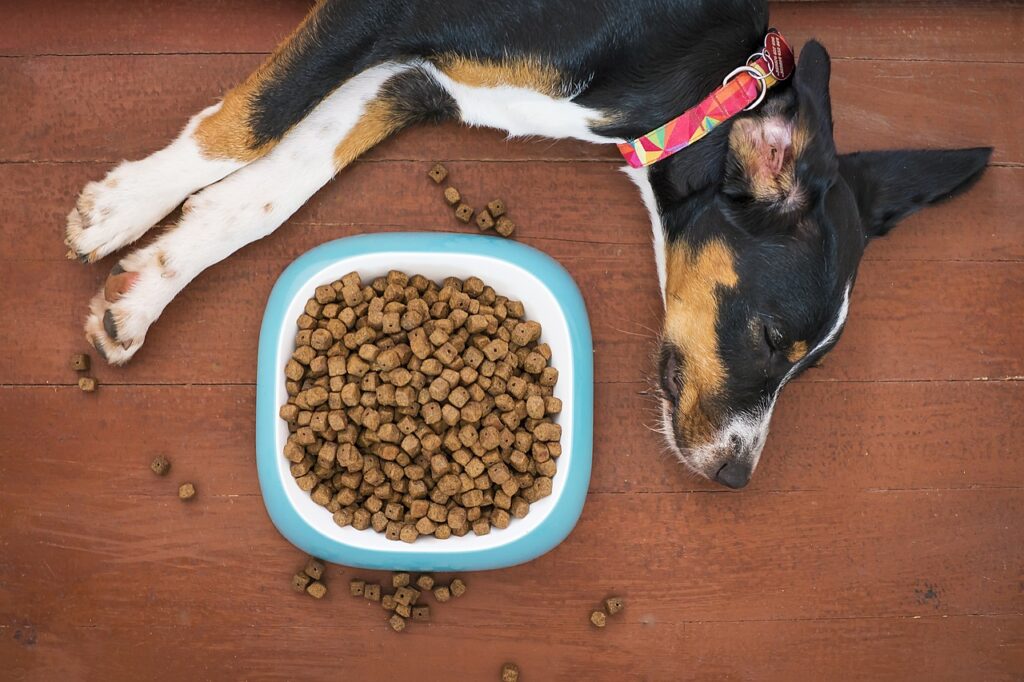
Offer a Variety of Foods
While it’s important to feed your pet a balanced diet, offering a variety of food options can keep their meals exciting and provide a broader range of nutrients.
How to Offer a Variety of Foods:
- Rotate Proteins: If you’re feeding dry food, try rotating between different protein sources like chicken, beef, or lamb to provide variety in their diet.
- Incorporate Wet Food: Wet food is a great way to add moisture to your pet’s diet, especially if it doesn’t drink enough water.
- Safe Fresh Foods: Certain fruits and vegetables (such as carrots, blueberries, and pumpkin) can be added to your pet’s meals. Always check which foods are safe for your specific pet.
Providing variety in your pet’s meals ensures they get a broad spectrum of nutrients and keeps their diet interesting.
Hydration Is Key: Make Sure Your Pet Drinks Enough Water
While food is essential, hydration is just as important for your pet’s health. Many pets, especially cats, don’t drink enough water, leading to kidney problems and urinary tract infections.
Tips to Encourage Hydration:
- Fresh Water: Always provide clean, fresh water for your pet. Change it at least once a day to keep it appealing.
- Water Bowls: Some pets may prefer drinking from a bowl with a wide, shallow design. Experiment with different types of bowls to see what your pet prefers.
- Water Fountains: Consider investing in a water fountain, especially for cats. Many pets prefer running water over stagnant water; a fountain can encourage more drinking.
- Wet Food: Adding wet food to your pet’s diet increases their moisture intake, especially for pets without water.
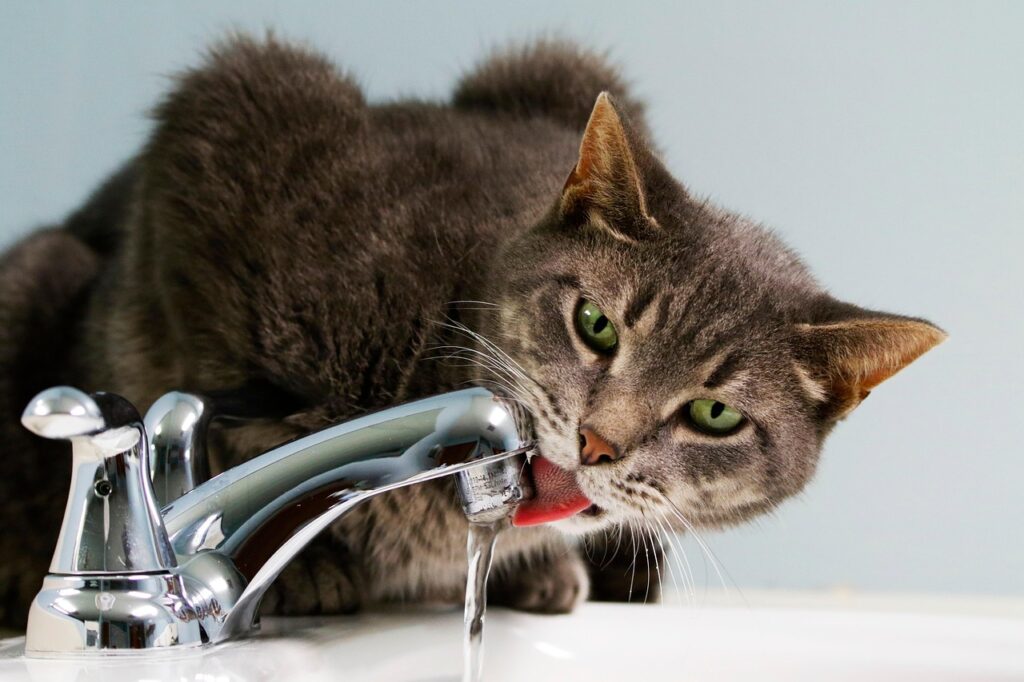
Special Dietary Needs for Certain Pets
Some pets may have specific dietary requirements based on age, health, or breed. Addressing these needs is essential for maintaining their health.
Puppies and Kittens: Growing Bodies Require More
Puppies and kittens require food that supports their rapid growth and development. Their diets should be high in protein and fat to support muscle growth, brain development, and energy needs.
- High Protein: Look for foods formulated specifically for puppies or kittens with high-quality protein to help their growth.
- Fat for Energy: They need more fat than adult pets, as they are more active and their bodies are still developing.
Senior Pets: A Diet for Aging Bodies
As pets age, their metabolism slows down, and they may develop specific health issues such as joint problems, dental issues, or reduced digestion efficiency. Senior pets may need food that is lower in calories but higher in fibre, vitamins, and joint-supporting nutrients like glucosamine.
Pets with Special Health Conditions
Pets with conditions such as allergies, diabetes, or kidney disease often require specialized diets. Consult your veterinarian for the best food for your pet’s condition. Special medical diets may include limited ingredients, low phosphorus content, or foods that regulate blood sugar.
Regular Vet Check-Ups for Ongoing Nutrition Guidance
Your pet’s dietary needs can change as it ages or develops health conditions. Regular veterinary check-ups are crucial for monitoring its health and adjusting its diet accordingly.
- Annual Health Check-ups: Regular vet visits help detect early signs of nutritional deficiencies or health issues that may require a diet change.
- Adjusting for Health Conditions: Your vet can help you select food tailored to your pet’s specific needs, whether they have food sensitivities, allergies, or chronic conditions like arthritis or kidney disease.
Homemade Pet Food: Is It a Good Option?
Many pet owners are choosing to make homemade meals for their pets. While this can be a great way to ensure your pet is eating high-quality food, it requires careful planning to meet all nutritional needs.
Benefits of Homemade Pet Food:
- Control Over Ingredients: You can choose high-quality, fresh ingredients for your pet.
- No Fillers or Additives: Homemade meals prevent unnecessary fillers and artificial additives in many commercial pet foods.
Challenges of Homemade Pet Food:
- Nutritional Balance: Ensuring the meal is nutritionally complete can be difficult. Pets need specific amounts of vitamins, minerals, and protein that are often hard to balance in homemade meals.
- Time and Effort: Preparing homemade meals can be time-consuming and costly.
If you try homemade meals for your pet, consult a veterinarian nutritionist to ensure the meals are complete and balanced.
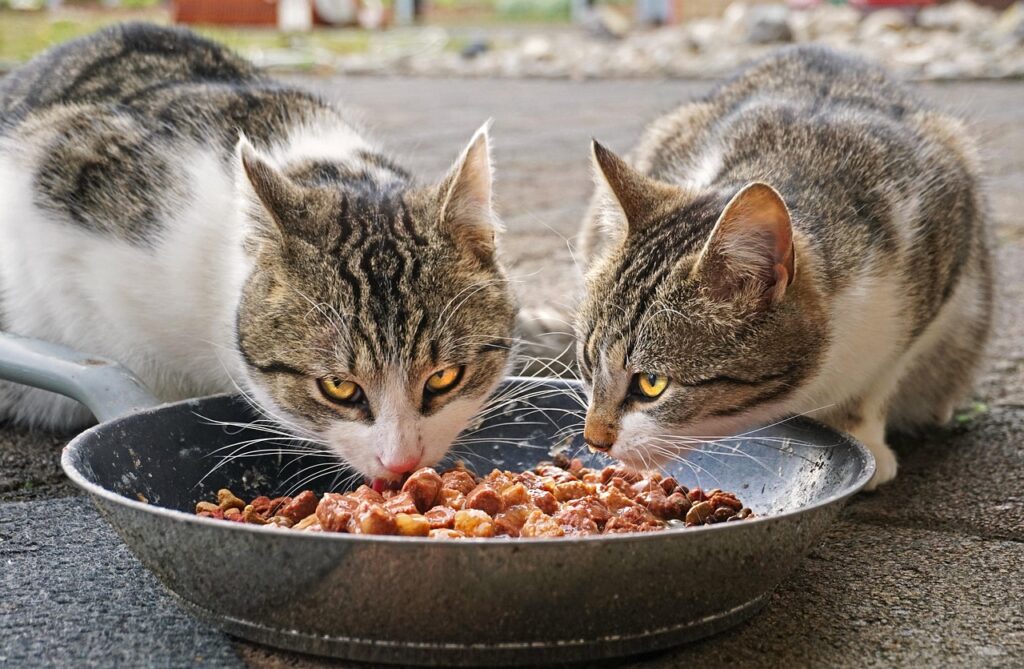
Supplements: When Are They Necessary?
While a balanced diet is typically all your pet needs, some pets may benefit from supplements, especially if they have specific health concerns.
Common Pet Supplements:
- Omega-3 Fatty Acids: These supplements support skin health, reduce inflammation, and promote cognitive function.
- Probiotics: Probiotics can aid digestion and support a healthy gut microbiome, especially for pets with digestive issues.
- Glucosamine and Chondroitin: These are often given to senior pets or those with joint problems to support mobility.
Always check with your vet before giving supplements to your pet to ensure they are necessary and appropriate.
Conclusion:
Providing the best pet nutrition involves more than just choosing the right food. It’s about understanding your pet’s unique needs, ensuring portion control, offering variety, and maintaining hydration. Focusing on your pet’s diet sets them up for a long, healthy, and happy life. Monitor their weight and health, and consult your vet regularly to ensure you’re meeting their ever-changing nutritional needs.
By following the best pet nutrition tips in this article, you invest in your pet’s health and ensure they live their best life. Start today by making small changes in your diet that will make a big difference in the long run.
FAQs
1. How do I know if my pet is overweight?
Look for signs like difficulty moving, an increased belly size, and excessive panting. Check your pet’s weight regularly and consult your vet for advice.
2. Can I feed my pet human food?
Some human foods are safe for pets, but many can be toxic. Always check with your vet before introducing any new foods.
3. How often should I feed my pet?
Most adult pets should be fed twice daily, but puppies and kittens may need more frequent meals. Always adjust based on their needs.
4. What are the signs of food allergies in pets?
Look for symptoms like skin rashes, vomiting, diarrhea, and excessive itching. Consult your vet for diagnosis and dietary changes.
5. Is raw food safe for pets?
Raw food diets can provide benefits but also pose risks, such as bacterial contamination. Speak with your vet before switching to a raw food diet.

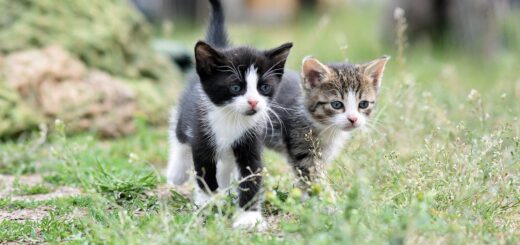
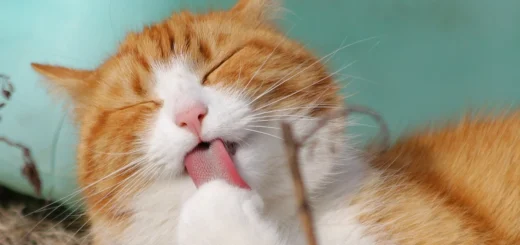


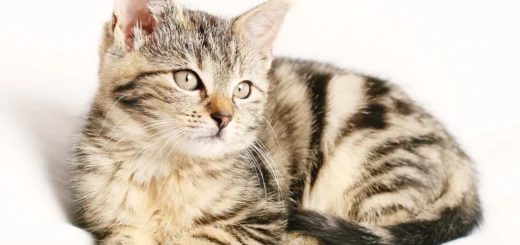










Recent Comments